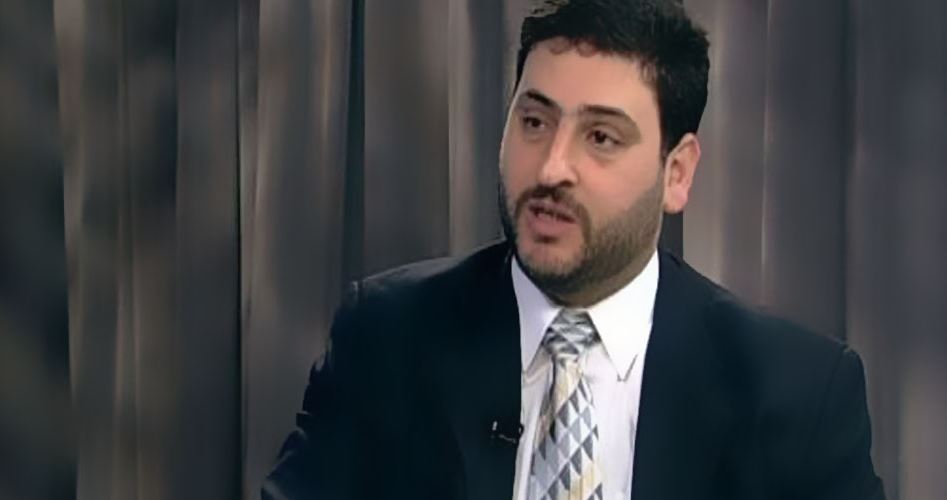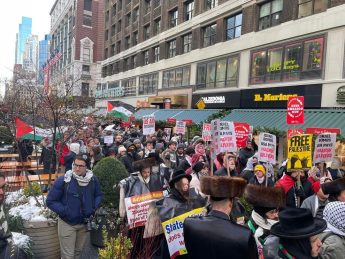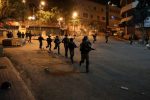Osama Abu Ershaid the national political director of the American-Islamic Foundation for Palestine who heads its Washington office and one of the organizers of the Action Day for Palestine at the US Congress said the goal of these events is to inform U.S officials that there is an American voice that rejects the blind bias to Israel.
He pointed out in an exclusive interview with the Palestinian Information Center that such meetings represent educational opportunities for many U.S officials especially at the Congress. Many of them do not know the facts on the ground in Occupied Palestine and the brutality of the Israeli occupation.
Abu Ershaid noted that this year is the third in which awareness is raised out about Palestine in Washington DC specifically at the US Congress. He pointed out that this year’s agenda is limited to three issues: the settlements the plan to transfer the US Embassy to Jerusalem and the rights of Palestinians under the Israeli occupation.
Interview:
What is your motivation behind organizing awareness events on Palestine in the United States especially at the Congress?
While arranging such events we are motivated by the fact that we are American citizens who have rights as well as duties. Any American citizen has the right to appeal to and pressure his/her elected officials to adopt and reject certain policies or approach certain issues in a more just and balanced manner.
Is the Palestinian narrative being absent from American officials?
Unfortunately the vast majority of American officials adopt the Israeli position almost entirely and they try to satisfy the American Jewish voters and funds and their allies over supporting truth and justice and even at the expense of US strategic interests.
What is the purpose of these meetings and events?
We aim by organizing such events to: First tell these officials that there is another American voice that rejects such blind bias. We aim to make use of our votes and money based on congressmen’s positions regarding the values of justice freedom and equality for all as well as maintaining American interests. Second we are working on providing educational opportunities for many officials especially at the Congress many of whom do not know the facts on the ground in Occupied Palestine and the brutality of the Israeli occupation and therefore they vote from their narrow perspective and based on their electoral interests and due to their ignorance of facts on the ground. Thirdly such events contribute to the creation of a new generation Muslims Christians and Jews who reject the occupation and injustice against the Palestinians and thus activating their electoral and civic participation to change the prevailing stereotype about the supporters of Palestine that they don’t vote or engage in the elections namely our Palestinian Arab and Muslim communities.
How can you contribute to strengthening the Palestinian narrative to face the Israeli narrative promoted by the Zionist lobby?
The way we work here and this is our third year in row to raise awareness about Palestine in Washington DC specifically at the US Congress is by preparing a specific agenda which includes three items this year: settlements the intention to transfer the US embassy to Jerusalem Palestinian human rights under the Zionist occupation. We try to highlight the legal humanitarian historical and legal backgrounds of each subject and how international laws and laws of the United States are applied to these issues and the impact of the American policy in this regard. We also examine to what extent the U.S is adopting a policy which contradicts its declared positions. We point out that these positions oppose American values that emphasize freedom justice and equality for all as well as their negative impact on U.S strategic interests and U.S national security.
How do you present your vision?
To be clear we are raising our issues from within the values security and national interests of the American establishment because we understand that our work is in America and it is not in the East and that we will be influential only if we spoke about the issue from within the context of America and the Americans.
We are not now even at the stage of liberating Palestine or changing the American position completely. This is impossible at least in the foreseeable future. Therefore our goal is limited to limiting America’s bias towards Israel and holding it accountable for violating international and American values and laws. We aim to connecting pledging any assistance to Israel to ending its occupation of the Palestinian Territories of 1967 which is considered by American and international laws occupied territories and to end any violations against Palestinian human rights. We aim to end racial and religious discrimination perpetuated by Israel against its Palestinian citizens who hold Israeli citizenship as well as bringing all American Zionist institutions that violate U.S laws accountable such as those who support settlements in the West Bank and East Jerusalem on the grounds that they are occupied territories. In this context we differentiate between our position and conviction regarding our full Palestinian rights and the position the U.S public policy. In other words we work as American citizens not as Palestinian citizens otherwise we will have no impact here and we will never be able to serve the cause of Palestine. The battlefields of the Palestinian struggle to achieve justice freedom and dignity are numerous and ours is America. We are keen not to get engaged with any outside parties or be affiliated with any foreign agenda.
What is the most important outcome of the Palestinian Day at the Congress?
In addition to the three issues that I referred to previously we discussed in our meetings with officials of the U.S State Department or the offices of members of the House of Representatives and the Senate the issue of the siege on the Gaza Strip and the prisoners’ hunger strike. We have been promised by some officials in the State Department to contact us again in an attempt to find a U.S mechanism that allows American charities to send humanitarian and medical aid to the besieged coastal enclave. We tried to practice pressure to achieve this but our efforts were not enough. We stressed that the blockade should be lifted completely but they explained that Israel and Egypt are sovereign states. They noted that the Palestinian Authority support these two countries.
Our response was that these three parties could not work against the will of U.S on the grounds that they were recipients of American aid yet U.S officials insisted on their position. We called on them to activate the Leahy Law which links any American foreign aid to the respect of human rights and which bans the use of any civilian or military assistance in maintaining the occupation or violation of international laws. We have been promised to do that but we do not expect much in this context.
How did you find the American interaction (popular and official) with the Palestinian Day?
More than 75 people participated in this activity this year 98% of them were young people. About 10% of them were Jews and Christians who attended to demand a more balanced policy towards the Palestinian cause. The elected officials have heard our message and now know that we are building more capacity in our community along with our allies to play an influential role in any future elections and Palestine will be in our calculations. This is a cumulative effort which needs conscious planning and patience.
What mechanisms and means do you apply to spread the Palestinian narrative?
We provide educational materials on the Palestinian narrative and Palestinian rights. We are strongly involved in working at universities giving lectures holding workshops and seminars at churches as well as at some moderate Jewish synagogues. We have many allies among all components of American society – Jews Christians Hindus Buddhists black Americans Latin Americans and Native Americans. This is a long way and we will continue it and God willing will harvest good results soon. Polls show that post-1981 born Americans including Jews are more sympathetic towards the Palestinians. Our work contributes to this end and we see this in the growing Boycott Divestment and Sanctions movement against Israel in the U.S economically and academically which pushed Israel to pressure the United States and federal government to pass laws that criminalizes the boycott movement. What provokes Israel that parties involved in the boycott movement include the councils of major American churches prestigious universities unions of university teachers and students many of whom are Jews.












